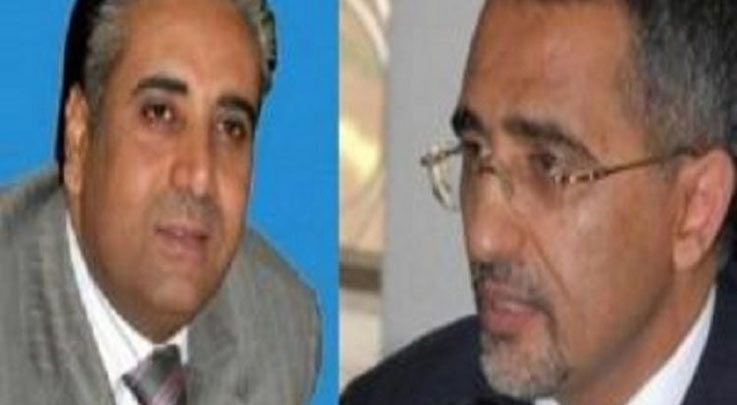UN Investigating Pro-Saudi Government Corruption
YemenExtra
M.A.
The dismissal of Hafez Mayad from the management of the Central Bank of Aden, on September 19, came after the international team of experts investigated cases of corruption and irregularities related to manipulation of the national currency, committed by Mayad, informed sources in the pro-aggression government has revealed.
The sources added that the process of corruption being investigated took place within the speculation in the sale and purchase of currency during the period from April to September 2019, by taking advantage of the price differences between market prices and purchase prices of the currency in Saudi riyals. The largest took place on April 7, 2019, with the amount of 10,612,245 dollars, a difference of 30 riyals between the price of the bank 490, and the market price 520. The transaction took place on behalf of the oil derivatives trader Ahmed Al-Essei and through CAC Bank. The total difference was 212,244,900 riyals.
As well as on April 23, in which the amount of $ 5,102,040 was disbursed, and the total difference was 163,265,280 rials, in favor of the trader Ahmed Al-Essei and through CAC Bank, from the exchange difference between the bank price 490 and the market price 522 riyals.
The sources confirmed that the leadership of the Central Bank of Aden represented by Hafiz Mayad committed several irregularities when dealing with oil derivatives dealers according to the UN report. During the period from April to September 2019, the Bank carried out a range of banking operations for selected traders of oil derivatives traders.
The total number of transactions reached 45, of which more than 97% was disbursed through CAC Bank. About 20 transactions were made for the trader Ahmed Saleh Al-Essei, owner of Arab Gulf Fuel Import Company, who is also the deputy director of Hadi’s office. The sources revealed that the total difference between the purchase and exchange price prevailing in the market amounted to six billion nine hundred and seventy-five million Yemeni riyals, during the period from April to mid-September, and the bank pays this amount, which benefits Al-Essei at the expense of the economy and currency.
Hafez Mayad took over as governor of the Central Bank on March 20, replacing Mohamed Zamam. His policies failed to protect the national currency, which saw fall from 586 riyals to the dollar when he was appointed a governor to 612 riyals when he was dismissed in mid-September.
During the period of Mayad’s management, the bank depleted its foreign exchange reserves from last year as a result of buying foreign currencies from the market and then turning the central bank as a competitor, causing the riyal to fall against other currencies and then selling them to oil derivatives traders at prices below-market prices, which means a double loss to the economy.
The irregularities in the banking operations indicate that Hafez Mayad harnessed his position in the leadership of the Central Bank and in the chairmanship of the Economic Committee for the Agricultural Credit Bank (CACB), which he assumed during the era of Ali Abdullah Saleh for a long time. He also used his position to serve oil trader Ahmed al-Essei.
This post originally ran on Almasirah English

